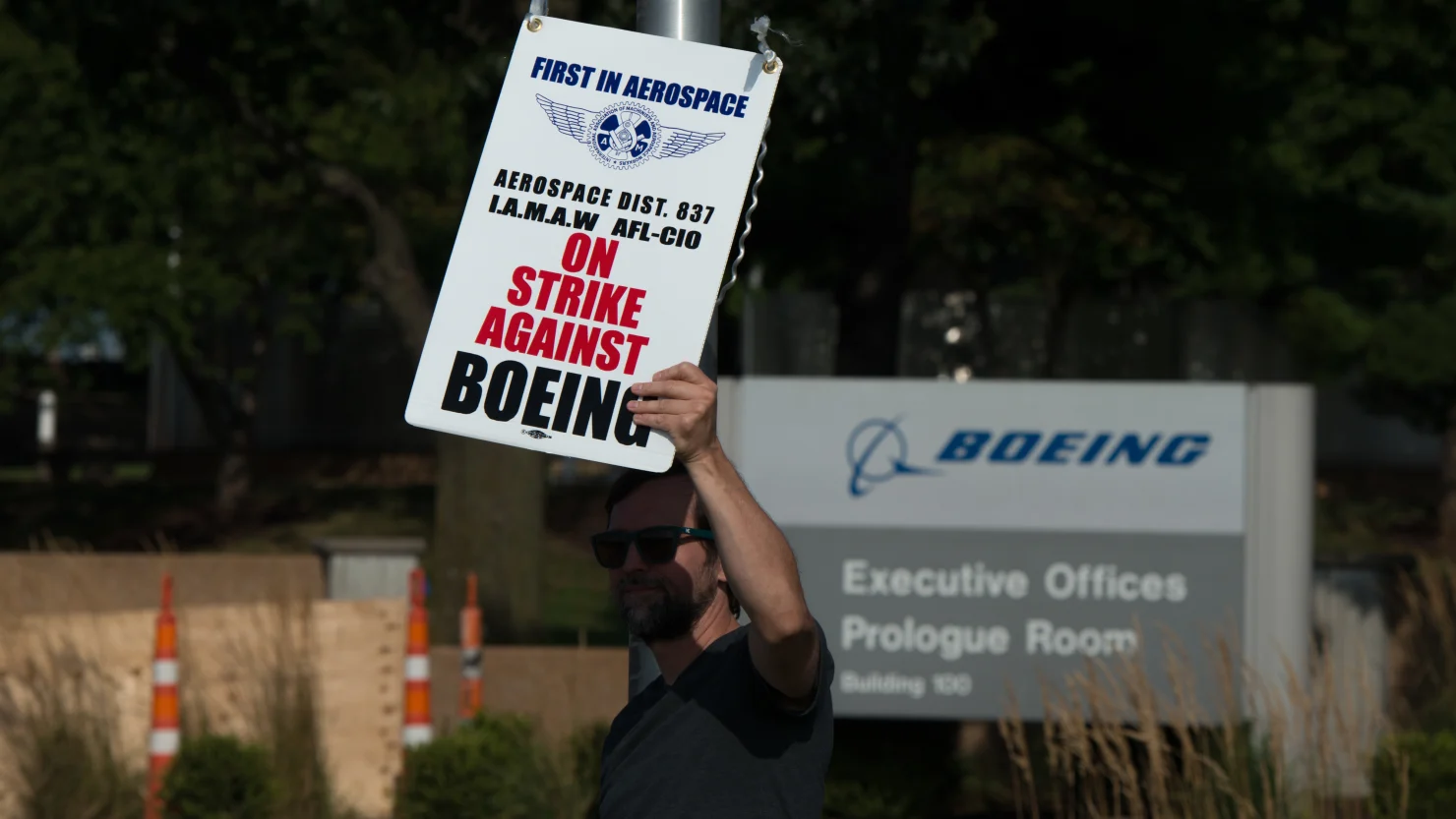Boeing is moving forward with plans to hire new workers to replace striking employees in its defense division, as the labor dispute enters its second month without a resolution. The 3,200 workers, represented by the International Association of Machinists and Aerospace Workers (IAM) District 837, walked off the job on August 4 after rejecting a contract offer from the aerospace giant.
In a statement, Dan Gillian, Boeing vice president and senior executive at the St. Louis site, said the company had little choice but to act. “Unfortunately, the union continues to demand more of everything while also saying it has no control over what it will take to end the strike, driving the parties further apart,” Gillian said. “As a result, we’re taking the next step in our contingency plan and hiring permanent replacement workers for manufacturing roles to ensure we’re properly staffed to keep supporting our customers.”
The striking employees are responsible for assembling and maintaining F-15 fighter jets and missile systems, crucial components of Boeing’s defense portfolio. The company has not specified how many replacement workers it intends to hire.
Union leaders have criticized Boeing’s decision, arguing that the company should return to negotiations rather than seek replacements. “Boeing is doubling down on its mismanagement by saying it plans to hire replacement workers to build military aircraft and equipment, instead of negotiating with their dedicated, generational and skilled workforce,” said IAM International President Brian Bryant. “Boeing – let’s get back to the negotiating table. Let’s get real about the concerns of our members and your employees.”
Boeing’s initial offer included a 20% general wage increase, a $5,000 ratification bonus, and other benefits. The company estimated that total compensation improvements could average around 40%, with average machinist pay rising from $75,000 to more than $102,000, according to a note from Jefferies.
The defense unit, which accounted for about 30% of Boeing’s $42 billion revenue in the first half of 2025, plays a vital role in the company’s operations. The strike adds to Boeing’s labor challenges, coming less than a year after more than 32,000 unionized machinists in its commercial aircraft division staged a seven-week walkout. That dispute ended with workers securing 38% raises over four years and other significant improvements, highlighting the growing power of labor unions in the aerospace industry amid shortages of skilled workers.
READ MORE:
